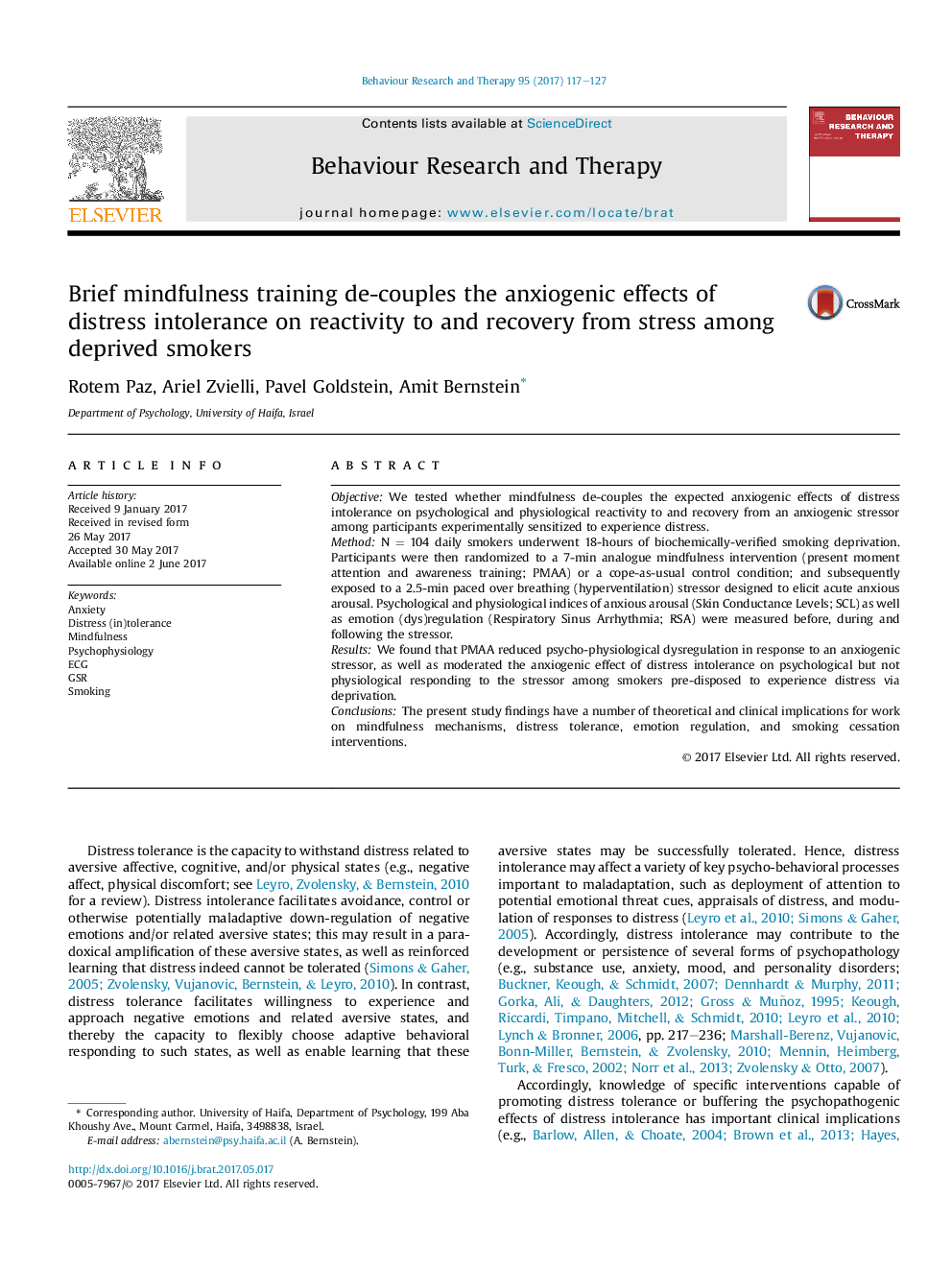| Article ID | Journal | Published Year | Pages | File Type |
|---|---|---|---|---|
| 5038254 | Behaviour Research and Therapy | 2017 | 11 Pages |
â¢Brief mindfulness meditation buffers the anxiogenic effects of distress intolerance among deprived smokers exposed to stress.â¢Brief mindfulness meditation improves physiological regulation of anxious arousal elicited by stress.â¢Findings relevant to mindfulness intervention and mechanisms research as well as smoking cessation intervention research.
ObjectiveWe tested whether mindfulness de-couples the expected anxiogenic effects of distress intolerance on psychological and physiological reactivity to and recovery from an anxiogenic stressor among participants experimentally sensitized to experience distress.MethodNÂ =Â 104 daily smokers underwent 18-hours of biochemically-verified smoking deprivation. Participants were then randomized to a 7-min analogue mindfulness intervention (present moment attention and awareness training; PMAA) or a cope-as-usual control condition; and subsequently exposed to a 2.5-min paced over breathing (hyperventilation) stressor designed to elicit acute anxious arousal. Psychological and physiological indices of anxious arousal (Skin Conductance Levels; SCL) as well as emotion (dys)regulation (Respiratory Sinus Arrhythmia; RSA) were measured before, during and following the stressor.ResultsWe found that PMAA reduced psycho-physiological dysregulation in response to an anxiogenic stressor, as well as moderated the anxiogenic effect of distress intolerance on psychological but not physiological responding to the stressor among smokers pre-disposed to experience distress via deprivation.ConclusionsThe present study findings have a number of theoretical and clinical implications for work on mindfulness mechanisms, distress tolerance, emotion regulation, and smoking cessation interventions.
